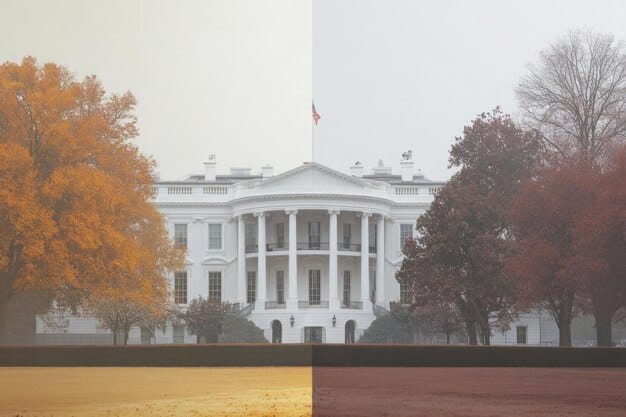Unclaimed Funds: $29 Billion Held by US Government!

The US government is currently holding over $29 billion in unclaimed funds, encompassing a variety of assets from forgotten bank accounts to uncashed checks, awaiting rightful owners to come forward and claim them.
Did you know that the US government is sitting on a mountain of money just waiting to be claimed? We’re talking about over $29 billion in unclaimed funds, and a portion of it could be yours!
Unbelievable! The US Government’s $29 Billion Stash
Imagine a treasure chest filled with billions of dollars, just sitting there, waiting to be claimed. That’s essentially what’s happening with the US government and its collection of unclaimed funds. This vast sum of money belongs to individuals and organizations who, for various reasons, have lost track of it. From forgotten bank accounts to uncashed checks, the reasons behind these unclaimed assets are as diverse as the American population itself.
But how does this happen? And more importantly, how can you find out if some of this money belongs to you? Let’s delve into the fascinating and sometimes perplexing world of unclaimed funds held by the US government.

Sources of Unclaimed Funds: Where Does All This Money Come From?
The sheer volume of unclaimed funds can seem mind-boggling. But when you consider the myriad sources from which these assets originate, it becomes easier to understand how the government accumulates such a substantial amount. These sources range from everyday financial transactions to more complex business and legal proceedings.
Abandoned Bank Accounts and Investments
One of the most common sources of unclaimed funds is abandoned bank accounts. People move, forget about old accounts, or simply lose track of them over time. Similarly, investments like stocks, bonds, and mutual funds can also become unclaimed if the owner moves and doesn’t update their contact information with the brokerage firm.
Uncashed Checks and Refunds
Another significant contributor is uncashed checks, including payroll checks, dividend checks, and tax refunds. Sometimes people forget to deposit checks, or they may move before receiving them in the mail. Government agencies, in particular, often have a large number of uncashed refund checks.
Understanding these sources provides a clearer picture of how unclaimed funds accumulate. If you’ve moved frequently or had numerous financial accounts, it’s especially worth checking to see if you have any unclaimed assets.
- Forgotten savings and checking accounts.
- Unredeemed savings bonds.
- Missing insurance payouts.
- Lost or forgotten retirement funds.
In conclusion, the accumulation of unclaimed funds is a result of various situations including forgotten accounts, uncashed checks, and unclaimed investments. Recognizing these sources is the first step in reclaiming what may be rightfully yours.
Federal vs. State: Understanding the System
Navigating the realm of unclaimed funds can be confusing, in part because both the federal government and individual state governments hold these assets. Understanding the division of responsibility is crucial for effectively searching for and claiming your funds.
Generally, the federal government handles unclaimed funds related to federal agencies and programs, while state governments hold funds from state-chartered banks, businesses, and other entities within their jurisdiction. Here’s a breakdown of the key differences:
Federal Unclaimed Funds
Federal agencies like the IRS, Treasury Department, and Pension Benefit Guaranty Corporation hold unclaimed funds related to federal taxes, government bonds, and pension benefits. Searching for these funds typically involves contacting the specific federal agency directly.
State Unclaimed Funds
States are the primary custodians of unclaimed funds. These funds come from a wide range of sources, including abandoned bank accounts, uncashed checks, insurance payouts, and forgotten stock dividends. Each state has its own unclaimed property program, and you can usually search for unclaimed funds on the state’s official website.

Knowing which level of government to contact can save you time and effort in your search for unclaimed funds. Starting with a broad search at both the federal and state levels is often the most effective approach.
In summarizing, both federal and state governments maintain unclaimed funds, with the federal government managing assets from federal programs and the state overseeing property from entities within their jurisdiction. Knowing where to start your search can significantly streamline the reclaiming process.
Simple Steps to Search for Unclaimed Funds
Finding out if you have unclaimed funds can seem daunting, but it’s actually a straightforward process if you follow the right steps. With a little time and effort, you might just discover a forgotten treasure.
1. Start with a Comprehensive Online Search
Begin your search by using online databases. Several websites allow you to search multiple states’ unclaimed property databases at once. One reliable option is MissingMoney.com, which is endorsed by the National Association of Unclaimed Property Administrators (NAUPA).
2. Check Federal Agency Websites
For federal unclaimed funds, visit the websites of relevant agencies. The IRS, for example, has a “Where’s My Refund?” tool, and the Treasury Department offers resources for locating matured, unredeemed savings bonds.
- Use MissingMoney.com for multi-state searches.
- Visit each state’s official unclaimed property website.
- Check the IRS website for unclaimed tax refunds.
Common Mistakes to Avoid in Your Search
While searching for unclaimed funds is generally straightforward, there are some common mistakes people make that can hinder their progress. Avoiding these pitfalls will increase your chances of a successful search and claim.
Falling for Scams
Be wary of unsolicited emails or phone calls offering to help you recover unclaimed funds for a fee. These are often scams. Legitimate unclaimed property programs never charge upfront fees to help you claim your money.
Neglecting Past Addresses and Names
Remember to search using all past addresses and names. You may have unclaimed funds associated with a previous residence or a maiden name. Providing as much information as possible increases the likelihood of finding your assets.
Avoiding scams and ensuring your search includes all relevant information will make the process more effective and secure.
In short, be cautious of scams and don’t limit your search to your current address and name only. Covering all bases ensures you don’t miss out on any potential unclaimed assets.
What Happens to Unclaimed Funds If Never Claimed?
You might wonder what happens to unclaimed funds if they remain unclaimed indefinitely. The answer varies depending on the state, but generally, the funds are used for public benefit.
In many states, unclaimed funds eventually escheat, or revert to the state’s general fund. This money can then be used to fund various state programs, such as education, infrastructure, or social services. While the state has access to these funds, the rightful owner typically retains the right to claim them indefinitely.
Escheatment to the State
Escheatment is the legal process by which unclaimed property transfers to the state. Each state has its own laws governing escheatment, including the holding period before property is considered unclaimed.
Use for Public Benefit
Once funds escheat to the state, they are often used to support public services. This means that unclaimed funds indirectly benefit the community as a whole.
Even if the funds are used for public benefit, the rightful owner usually retains the right to claim them. It’s a win-win: the state can use the money to improve public services, and individuals can still reclaim their assets when they come forward. Thus, understanding what happens to unclaimed funds encourages responsible asset management and reclamation.
Success Stories: Real People Reclaiming Their Money
Hearing about real people successfully reclaiming their unclaimed funds can be incredibly motivating. These success stories highlight the potential rewards of taking the time to search for and claim your assets.
Imagine discovering a forgotten savings bond worth thousands of dollars, or an unclaimed inheritance that you never knew existed. These scenarios are not uncommon, and they demonstrate the real impact that unclaimed funds can have on people’s lives.
An Unclaimed Inheritance
One story involves a woman who discovered she was entitled to an unclaimed inheritance from a distant relative. After a simple search on her state’s unclaimed property website, she was able to claim the funds and use them to pay off her mortgage.
Forgotten Savings Bonds
Another individual found several matured savings bonds that had been forgotten in a safety deposit box. The bonds had significantly increased in value over the years, providing a substantial financial boost.
- Paying off debt with reclaimed funds.
- Funding education expenses with unclaimed savings.
- Investing reclaimed money for future financial security.
| Key Point | Brief Description |
|---|---|
| 💰 Unclaimed Funds | Over $29 billion held by the US government. |
| 🏦 Common Sources | Forgotten bank accounts, uncashed checks, etc. |
| 🔍 How to Search | Use online databases and check federal agencies. |
| 🛡️ Avoid Scams | Be wary of unsolicited offers for a fee. |
FAQ: Unclaimed Funds in the US
▼
Unclaimed funds are financial assets that have been lost or forgotten by their rightful owners. These funds can include money from bank accounts, uncashed checks, insurance policies, stocks, and other sources.
▼
You can start by searching online databases like MissingMoney.com or by visiting state-specific unclaimed property websites. Also, check federal agencies like the IRS for unclaimed tax refunds.
▼
No, legitimate unclaimed property programs never charge upfront fees to help you claim your money. Be wary of any offers that request payment before helping you.
▼
If unclaimed funds are never claimed, they typically revert to the state’s general fund. However, the rightful owner usually retains the right to claim the funds indefinitely, even after they escheat.
▼
You’ll need your name, past addresses, and any previous names (such as a maiden name). Providing as much information as possible will increase the chances of finding your assets.
Conclusion
The US government’s holding of over $29 billion in unclaimed funds is a stark reminder of the importance of staying organized and proactive with your financial assets. By understanding the sources of these funds, knowing where to search, and avoiding common mistakes, you can take control of your financial well-being and potentially reclaim what is rightfully yours. Don’t let your money sit unclaimed – start your search today!





